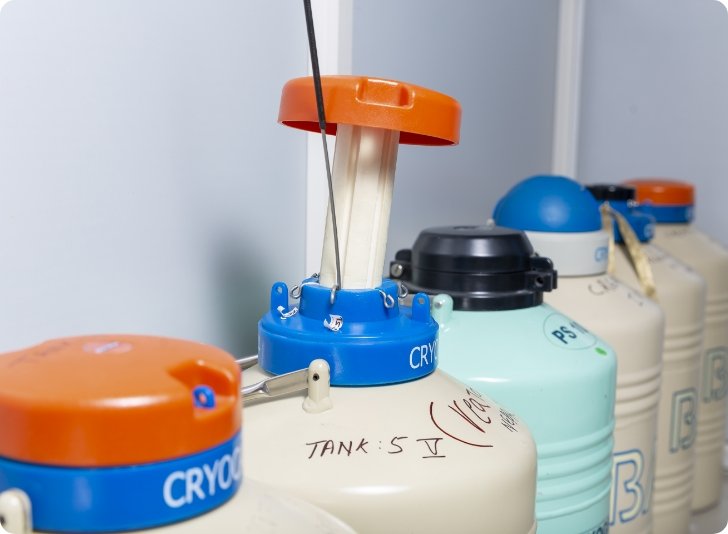Vitrification (Oocytes & Embryos)
- Services
Thorough Subfertility Couple Counseling
Comprehensive Subfertility Workup of Subfertile Couple
Transvaginal Sonography (TVS) of Subfertile Female
Sono Hystero Salpingo Graphy (SSG)
Timed Intercourse (TI)
Intra Uterine Insemination (IUI)
In-Vitro Fertilization and Embryo Transfer (IVF-ET) (Regular/Batch)
IntraCytoplasmic Sperm Injection (ICSI)
Cryopreservation of Sperm
Vitrification (Oocytes & Embryos)
Donor Programme
Andrology Services
Pathology Routine/ Hormone Estimation
Radiology
Fetal Echocardiography
Antenatal Clinic
Endocrinology
Any Questions About Fertility challenges
Call Anytime!
+977 9840187810

Introduction
The Future of Fertility Preservation
What is Vitrification?
Fast-Freezing Technology for Fertility Preservation
Vitrification is an advanced, ultra-rapid freezing process that solidifies oocytes or embryos without the formation of damaging ice crystals. Traditional freezing methods often pose risks due to ice formation, but vitrification eliminates this issue, ensuring higher survival rates when thawed. This technology is now considered the gold standard in fertility preservation, offering patients reliable options for future family planning.
Why Choose Vitrification?
Extended Preservation:
Vitrification allows oocytes and embryos to be safely stored for many years without compromising their quality, providing patients with flexibility in planning their future fertility journey.
Flexibility:
After a fresh IVF cycle, vitrification offers the option to freeze any excess embryos, allowing them to be used in future fertility treatments without the need for another full IVF cycle.
Fertility Preservation:
Vitrification is an ideal choice for individuals who wish to delay childbearing, such as women undergoing medical treatments that may affect fertility, or those simply wanting to preserve their fertility for future family planning.
Oocyte Vitrification
Preparation
Before vitrification, oocytes are carefully prepared and placed in a protective solution. This solution, known as a cryoprotectant, protects the cells from damage during the freezing process.
Vitrification Procedure
The oocytes are cooled at an incredibly fast rate, turning them into a glass-like state without the formation of ice crystals. This rapid freezing process ensures that the oocytes remain intact and viable when thawed for future use.
Embryo Vitrification
Embryo Selection
Before vitrification, embryos are carefully assessed to ensure their quality. Only healthy and viable embryos are selected for freezing, maximizing your chances of success in future fertility treatments.
Storage
Vitrified oocytes and embryos are stored in cryogenic tanks at ultra-low temperatures, where they remain safely preserved for years. Our state-of-the-art storage facilities are closely monitored, ensuring the highest standards of safety and security.
Who Should Consider Vitrification?
Eligibility for Oocyte & Embryo Preservation
Patients with Excess Embryos
Vitrification is ideal for women who want to preserve their fertility due to personal, professional, or medical reasons, such as those undergoing treatments like chemotherapy or radiation that could impact future fertility.
Effectiveness
Vitrification has been shown to have high success rates, with oocytes and embryos maintaining excellent viability when thawed. The survival rate of vitrified embryos is comparable to fresh embryos, making this a highly effective method for future fertility treatments.
Long-Term Viability
Research demonstrates that vitrified oocytes and embryos can remain viable for many years, allowing patients the confidence and flexibility to use them when they are ready.
